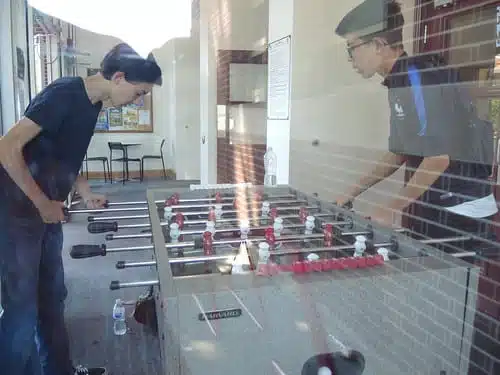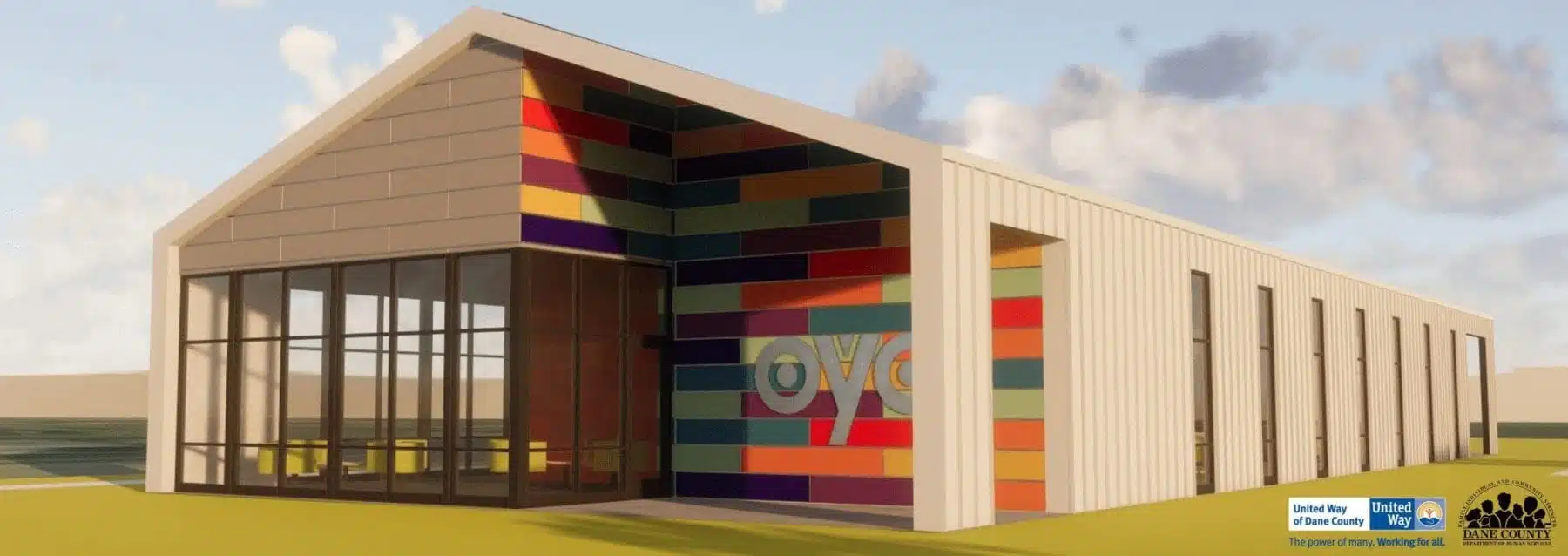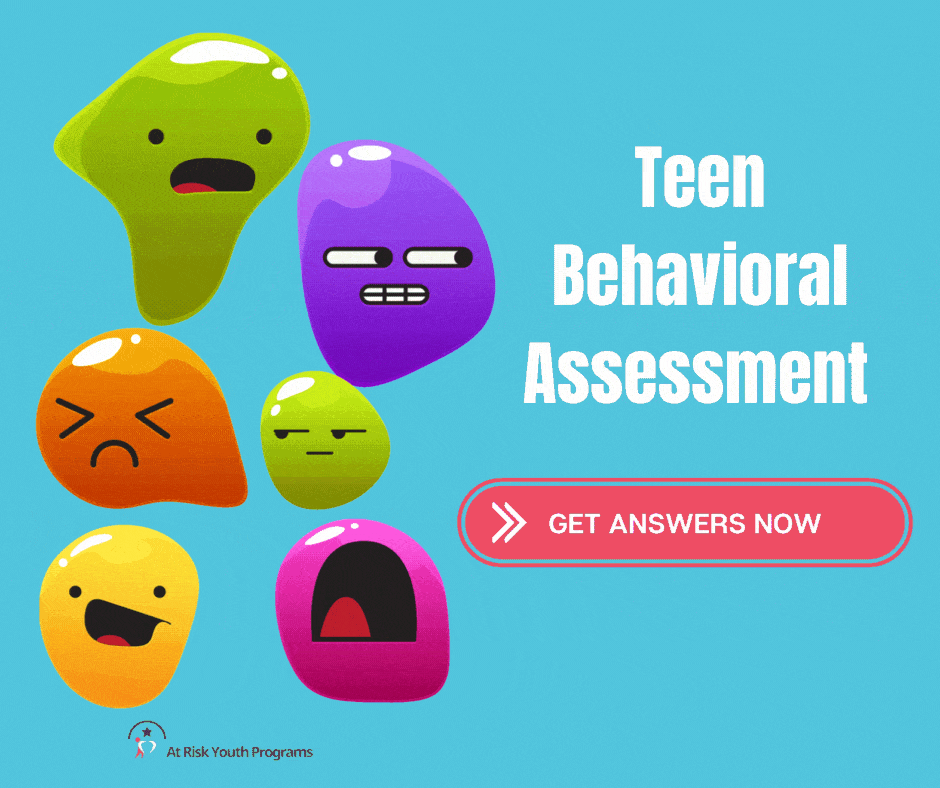What are At Risk Youth Centers?
At-Risk Youth Centers are a place where youth can hang out, do homework, or participate in a wide range of activities throughout the day. Youth centers are often connected with community youth support organizations that provide after-school activities and help young people stay safe and develop better self-esteem.
Wikipedia defines youth centers or youth centres, or youth clubs, as places where young people can meet and join in a variety of activities, including games, occupational therapy, and religious activities.
The Impact of At Risk Youth Centers
According to the Centers for Disease Control and Prevention, the top behaviors that contribute to at-risk youth include:
- Unintentional injuries and violence
- Vaping or tobacco use
- Substance use (alcohol, drugs, etc.)
- Sexually risky behavior
- Poor dietary choices
- Physical inactivity
Community-based At-Risk Youth programs work toward helping struggling teens make better life choices and offer some teen rehabilitation services.
Are These Community At-Risk Youth Centers Expensive?
Many non-profit organizations in each state help underprivileged teenagers realize their full potential and not start their lives as at-risk youths. Many at-risk youth centers are committed to helping adolescents and offer a multitude of services and opportunities while providing a group-home environment during the day that keeps teenagers out of trouble.
Community Engagement: How Youth Centers Foster Positive Change
One of the great things about youth community activity centers is that they keep teens in a positive environment, mix with different age groups, teach life skills, and encourage creative development. A youth center is a public facility that offers a supervised environment.
Daily or weekly participation helps teens develop their physical, social, emotional, and cognitive abilities and experience achievement, enjoyment, friendship, and recognition. An important aspect to ensure the success of the facility is the space itself. While meeting the durability requirements for a public facility, the furnishings, colors, finishes and surfaces in youth centers need to promote a sense of ownership and freedom.
A center typically offers recreation, arts, games, music, development programs, education and volunteer opportunities. It is a place where vulnerable youths can learn about different values, make better decisions, participate in leadership opportunities, and get mentoring.
Many communities offer youth-friendly recreation and classes geared toward helping adolescents rediscover the pleasure and satisfaction of learning. These community-supported organizations recognize that at-risk youths often do well with more experiential learning instead of a traditional classroom setting.
Community youth centers help vulnerable young people deal with the consequences of their decisions. For example, NY Youth At Risk (New York) is a non-profit center with a program that deals explicitly with young parents.
Young men are taught to be responsible providers to their children and to become more involved and engaged in their lives. Young women are helped to realize their self-worth, become better parents, and prevent further unplanned pregnancies.
Are At-Risk Youth Centers Effective?
Not all youth centers have the same success rates, in the same way, that not all of them implement the same program for troubled youth the same way. However, many community youth centers have significant success in mentoring young people.
- 30% of teenage moms complete high school after giving birth.
- Many teen moms give birth to a second baby less than three years after their first, indicating that they make the same mistakes.
- However, the NY Youth At Risk Center statistics are different:
- 90% of the young women they mentor stay in high school or earn their GED.
- About 91% of these young women also prevented unwanted pregnancies after their first pregnancy.
- Young people participating in good youth centers in their city or town:
- find the support they need to avoid gangs
- are less likely to be involved in criminal activities
- After participating in a community center program for youth, they make better choices and have a better life.


Youth centers offer after-school programs aimed at preventing delinquent behavior. And helping children and adolescents become more productive during after-school hours.
Youth centers provide after-school activities that prevent delinquent behavior and promote productivity. Like many other interventions for troubled teens, at-risk youth centers are more effective when young people have a robust support system at home. It’s not a magic cure-all and often works better when done together with other types of interventions for support.
The Benefits of Community Youth Centers
Being involved in a youth organization and receiving community support can help teens build relationships with people they might otherwise meet. Adolescents participating in these youth center programs gain access to opportunities that would not be available to them otherwise. Access to services like:
- teen rehabilitation
- counseling for alcohol, drug use, and trauma
- intervention services
- youth support groups
- anti-gang programs
- sports activities
- arts & crafts
- workforce preparation
- fitness and nutrition guidance
- tutoring
- computer skill training
- volunteerism and local service opportunities
Participation in these activities usually:
- a strong sense of accomplishment
- find their passions and new interests
- develop leadership skills
- build new friendships
- a sense of pride and belonging
Other At-Risk Youth Centers and Facilities, Treatment Centers for At-Risk Youth, or Programs for Troubled Teens
It is important to actively seek out different interventions and encourage troubled or at-risk youth to get involved in their local youth centers. However, when local programs are not effectively helping your teen, it may be time to consider other intensive or residential programs specifically designed to help teens with mental health, behavior and or emotional issues. Programs like:
-
Wilderness programs where struggling teens can enjoy experiential learning and counseling.
-
Non-residential or residential treatment
-
Therapeutic boarding schools
-
Short-term programs that offer family therapy and or outpatient therapies.
While some of these solutions may be a bit expensive, many offer financial help, accept health insurance, and offer scholarships for families that cannot afford to send their troubled teens to a rehabilitation or teen residential treatment program.
If you are interested in finding support for your teenager’s education or behavioral issues, you can start by speaking to counselors at your local youth center. Youth center staff and counselors can be particularly helpful for parents who need extra assistance in getting their teens back to school or convincing them to remain in school.
Sometimes, a local program for at-risk youth may not be sufficient. Are you seeking more information on these subjects? If you have questions like:
-
What if my child needs more than what they can find at a local youth center?
-
What options exist when you try counseling and therapy, and there is little to no improvement?
-
Does my child need or benefit from a residential treatment center?
Are you seeking more insights on empowering at-risk youth? Dive deeper with our comprehensive guide on Treatment Centers for At-Risk Youth and explore our most popular articles for valuable resources and support strategies. Start making a difference today!














